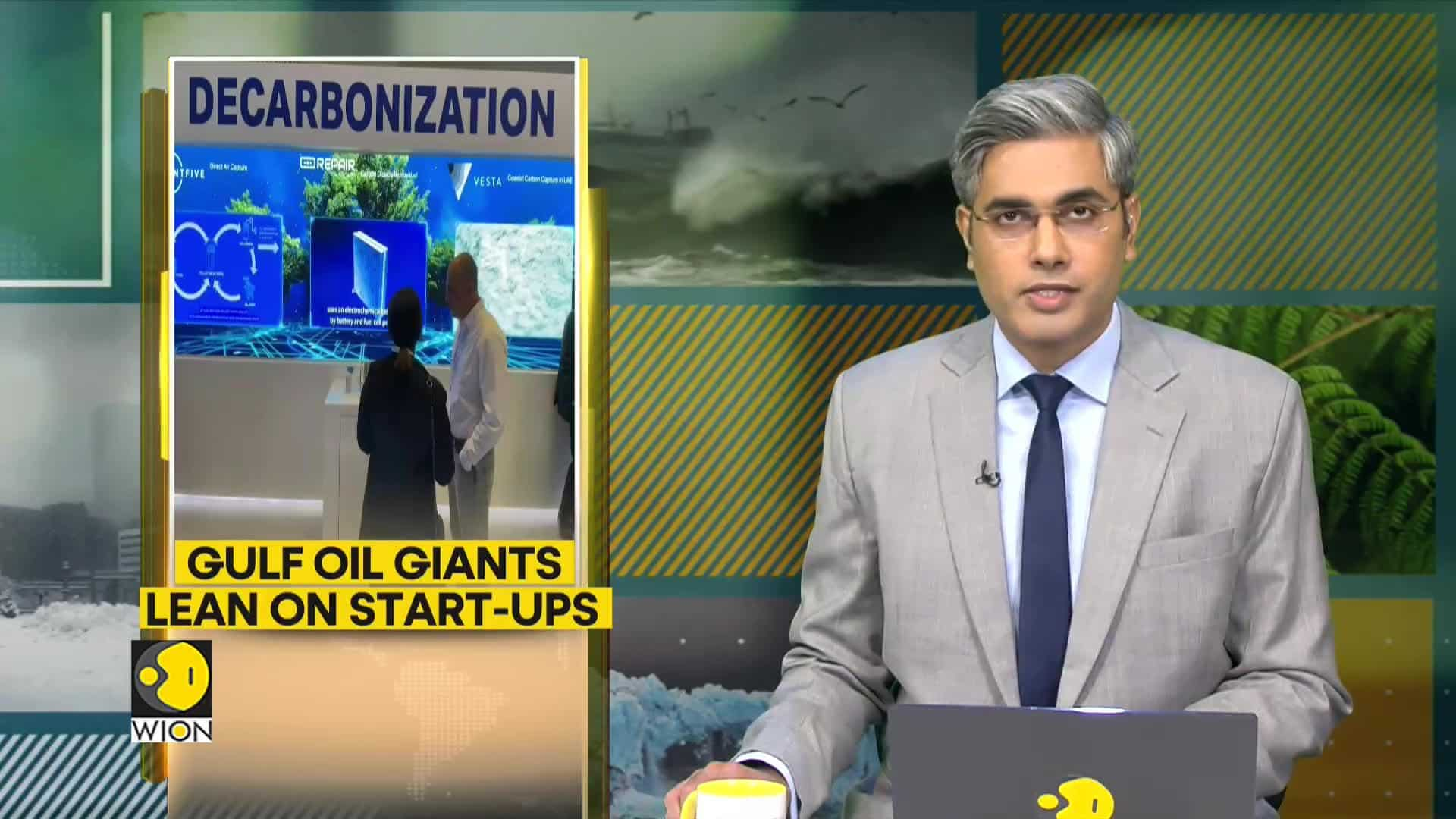
UNITED NATIONS (AP) — U.S. climate envoy John Kerry on Tuesday urged the world to be “very skeptical” about claims from oil and gas producers that emerging technology soon will allow people to adequately capture the climate-wrecking fumes emitted by their cars, planes and businesses.
It’s “one big question mark,” Kerry told The Associated Press of the future viability of carbon-capture technology, a debate at the heart of global negotiations on cutting emissions to stave off the most disastrous scenarios of global warming.
The International Energy Agency and increasing numbers of scientists, governments and global leaders and advocates are saying the only way to rein in climate change fast enough is to immediately stop drilling new oil and gas wells and sharply phase down existing drilling.
Many oil companies and oil states are fighting the calls for production cuts, saying that still-emerging carbon-capture technology will come to the rescue. The burning of fossil fuels is the main cause of global warming, and techniques to capture enough of the fumes to make a difference, affordably and efficiently, have yet to be developed.
“Let’s be very skeptical about this unless it’s proven to work,” Kerry told the AP after delivering a statement at a U.N. Security Council meeting. “We can’t afford to play games anymore with the amount of fossil carbon that’s going up in the atmosphere,” along with methane and other climate-damaging gases from the oil and gas industry.
That doesn’t mean that government, corporations and oil and gas producers shouldn’t keep pushing for breakthroughs in the technology, he said. “If it could work, fine, you know. … But we heard for 30 years about clean coal, and how did that work out?”
Kerry told the U.N. Security Council that “it’s now indisputable – indisputable – that the climate crisis is one of the top security threats, not just to the developed world but to the entire planet, to life on the planet itself.”
He said it already costs countries billions of dollars every year “just to clean up the mess, and most importantly, it costs the world millions of lives,” including 7 million a year who die from greenhouse gas pollution.
Kerry stressed that 48 countries in sub-Saharan Africa account for 0.55% of global emissions and 20 countries account for 76%. He said they all pledged nearly 10 years ago to cut emissions fast enough to keep the rise in temperature to 1.5 degrees Celsius, a threshold scientists say is about to be crossed, “but we're not all doing it.”
He said he wasn’t at the U.N. to point fingers but to urge all countries to start working together to tackle the crisis. He called for an immediate end to the permitting of new unabated coal plants.

WION Energy giants turn to humble tech startups to remove emission | WION Climate Tracker
2:26
“No country should be bringing online new sources of pollution wherever it comes from, knowing what we know about this crisis," Kerry said.
Globally, no major oil and gas producer is known to be seriously considering phasing down its production, said Hanna Fekete, a researcher with the German-based NewClimate Institute. The U.S., the world's biggest producer, is among those scaling up production, despite the Biden administration's climate commitments.
American consumers would need to cut their dependence on fossil fuels dramatically if the U.S. is to meet its climate goals, Fekete said.
The United Arab Emirates, the host for U.N.-sponsored climate talks later this year, is also among the nations aiming to ramp up production, not reduce it.
Kerry called the stepped-up U.S. production a “momentary bubble” as a result of bumps in the global energy market from the war in Ukraine. Increased U.S. demand for electric vehicles and a move to cleaner forms of power would help take care of that, he said.
“So, we’re in a transition. The word transition is very key to what we’re trying to do,” Kerry said.
China would have to step up as well, Kerry said. The country is currently the top emitter of fossil fuels, owing partly to continued operation and building of dirty-burning coal-fired power plants.
President Xi Jinping's government has resisted pressure to rapidly phase out coal plants, arguing that China is still a developing nation and should not be held to the same climate standards as the U.S. and other big Western economies.
“Well, first of all, China is not a poor nation,” Kerry said. “So let’s understand that the second-largest economy in the world is exactly that, the second-largest economy in the world, and they’ve spent huge amounts of money around the world in various countries.”
Kerry also made clear that he will not go to China for face-to-face talks with his climate counterpart, Xie Zhenhua, before U.S. Secretary of State Antony Blinken visits Beijing. He is expected in China soon.
Kerry, who was invited to Beijing by Xie, noted concerns about the health of the Chinese official, who has been a key part of U.S-China climate negotiations that have led to some past climate breakthroughs.
“He’s had a difficult period in the last months, and we wish him well,” Kerry said. “He is a very, very important interlocutor and he’s very reliable and trustworthy in terms of his commitment, seriousness. So we hope the Chinese-U.S. track will begin to get on.”
—-
Knickmeyer contributed from Washington and Jordans from Berlin.
-
Edith M. Lederer, Ellen Knickmeyer And Frank Jordans, The Associated Press
No comments:
Post a Comment